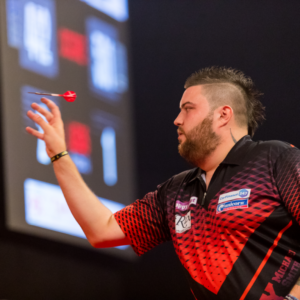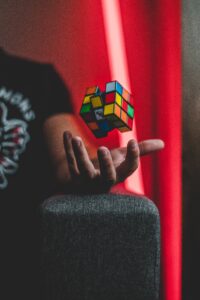Sarah Hope: The ultimate goal
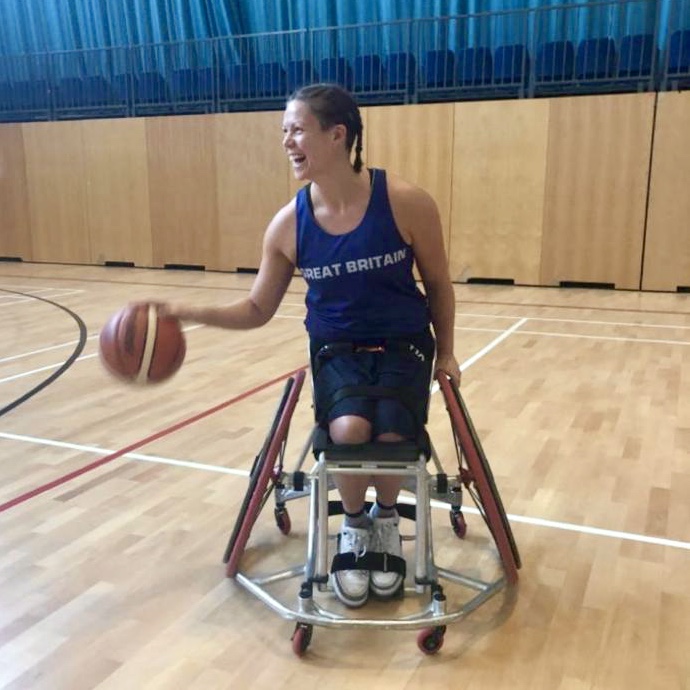
In a small corner cupboard of her family home, Great British wheelchair basketball player Sarah Hope stores an assembly of mementos that she has collected since taking up the sport 10 years ago.
Medals, tournament programmes, and random keepsakes have all found refuge in the said cupboard, as well as some Tokyo 2020 pin badges she picked up on her last visit to Japan pre-COVID-19.
With the pandemic eventually postponing this year’s Olympic Games, those pin badges have become collector’s items.
But Sarah will be aiming for more than just getting her hands on updated souvenirs next year; she is after a Paralympic medal.
“If I got that, it wouldn’t end up in there; it would be on the wall! That’s the ultimate goal,” said Sarah, who has autism and a rare disability called Hereditary Peripheral Neuropathy affecting her lower limbs.
“I went full-time with the GB programme in 2016, just as everyone had come back after the Rio Games, so the idea was to do a four-year cycle with the aim of being selected for the Paralympic team.
“We are fortunate to have quite a few talented people in our squad, but they can only select 12 and the competition is tough – that drives me to keep training, even when I’d wake up in lockdown and really not fancy another home workout.
“I’m Instagram friends with players from other countries and could see them training while we couldn’t because our lockdown rules were different, so when the Games were put back a year, everyone drew a sigh of relief as it’s more of an even playing field.
“I also get to do my hobby for a living. It definitely can be stressful in terms of the pressure of competing internationally; there’s nothing quite like it. But it’s such a great life to live.”
For Sarah, Japan is almost a second home having already visited four times for various competitions and occasions, picking up handy nuances in etiquette and culture for if she does return for a fifth.
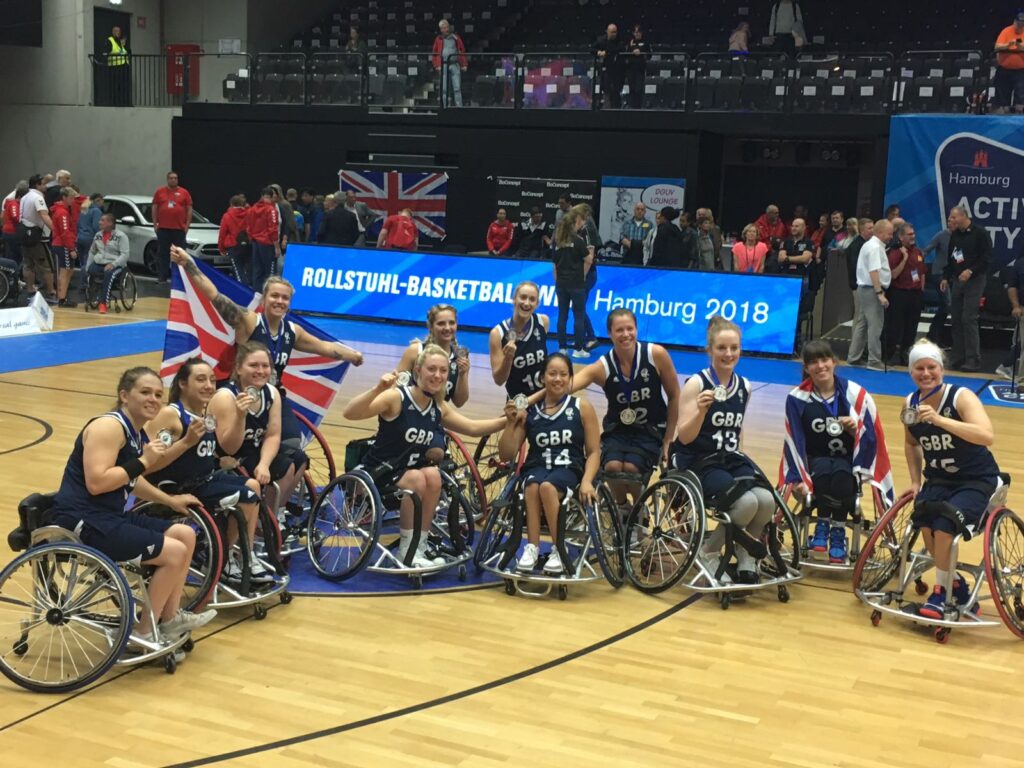
As a self-proclaimed hermit, a life with plenty of travel commitments is one that took some getting used to, and that is only the beginning.
“When you travel the world with sport, you tend not to see the world, just the hotel and training venue.
“A lot is done for us, which is good and bad. Our flights and hotels are booked for us, our schedule, meals and transportation are all planned, but by not being in control, I’ll still worry about it.
“That first time we went to Japan I had no reference points whatsoever and I was quite anxious; it was the social side, do people put their headphones in on the aeroplane or are we expected to talk for 14 hours? When we get there, what do we do in our free time? All these things were gaps in my mind that I needed to know.
“Having to negotiate being around people all the time was the necessary evil that came with wanting to pursue this passion. But it’s definitely helped me, I understand so much more about people now than I did 10 years ago, even though there have been a lot of ups and downs, misunderstandings and disagreements.
“Because its disability sport, everyone has varying levels of what they can and can’t do and nobody is seen as the odd one out. There are some people that can walk, can’t walk, struggle to sit up on their own, and when it comes to me, there’s just that little added extra of the sensory issues and social aspects.
“I believe that sport can be a good platform for autistic people to get better at social interactions.”
Through basketball, continuing to play for Coventry Crusaders in addition to Team GB, Sarah grew to understand herself more than she’d ever imagined, particularly as a teenager whose autism was misdiagnosed multiple times.
Although she had her own incline, it was her dedication to achieving in basketball that drew the final straw in seeking clarification.
“I understand so much more about people now than I did 10 years ago, even though there have been a lot of ups and downs, misunderstandings and disagreements.”
Sarah Hope
As well as for her own closure, team-mates and coaches also needed to know so they could make her life more comfortable, by reducing the fluorescent lighting on court, or understanding that she can’t hear touchline orders when blocking out all sensory stimuli other than the ball and the basket.
“There have been times over the years where I thought I just couldn’t do it, I was never going to be good enough, which everyone has had at some point,” admitted Sarah, who has spent the last decade at the Crusaders. “It was a case of, perhaps I’m autistic and I just can’t learn how to do this, maybe the odds are stacked against me.
“Then I said, no.
“I’ve got to this point where I am in contention for the Paralympic team, that’s the highest you can get, it’s unbelievable. I’ve always been a high achiever and I’m proud of the fact I have managed to get here.”
Since the start of the year, Sarah has become significantly more open about her autism and she has already started inspiring others to pursue sport.
“In January, I was part of a televised game and I had people coming up to me at the end for signatures.
“One girl came up to me – we had been chatting on social media – and asked for a photo. And her friend said, ‘I’m autistic too. I want to be like you!’
“That was the first time it had occurred to me, whether I wanted to or not, that I had become a role model purely by putting that [having autism] in my Instagram bio.
“I did a Q&A on my Instagram [account] in April and I had three more people contact me just from wheelchair basketball saying, ‘I’m autistic too, and now I know I can do these things.’”
Since raising money for the National Autistic Society during lockdown, Sarah aims to continue what she started in January.
With the Paralympic Movement celebrating its 72nd birthday today, she knows sport is much more than elite performance – the same joy she experienced in winning a silver 2018 World Championships medal in Rotterdam can be found daily by anyone.
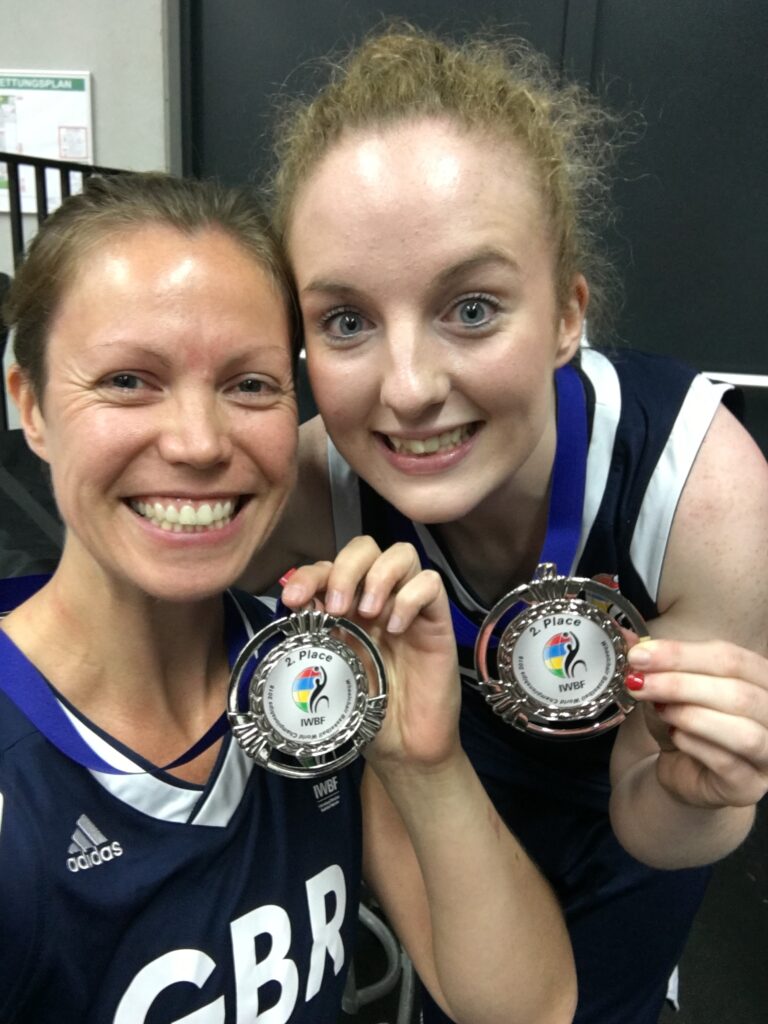
“The games I took part in are comparable to playing for Coventry. If you are doing what you love and winning, it is much the same.
“I’m also advocating for autistic people to get into any type of activity, exercise, sport, whatever that is.
“I’ve just partnered with an organisation in Staffordshire called Keep Achieving at Home, which is for families with an autistic child and they do activities together. I’m going to be working with them to keep them active, as opposed to necessarily involved in team sports, which can be daunting.
“It’s keeping active, but there isn’t a limit in how far you can go, you can take it to international level.
“Go for that gold medal, if you want to.”

